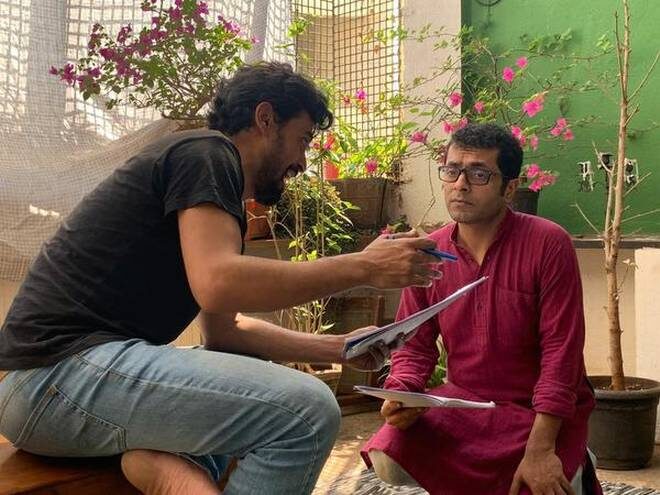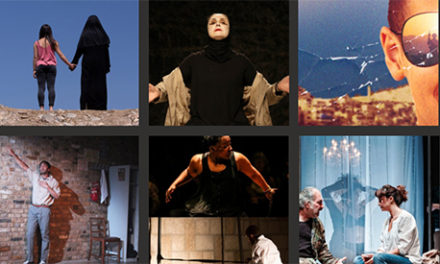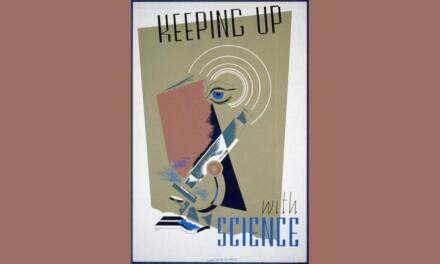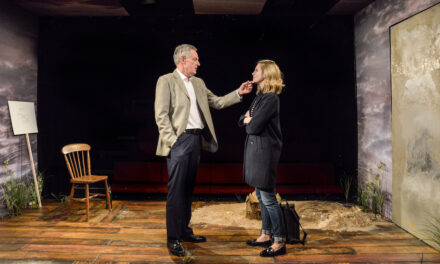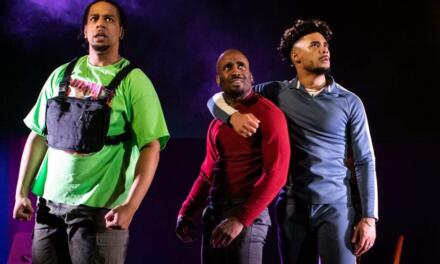All India Forward Bloc architect, Netaji Subhash Chandra Bose and his equally illustrious elder brother Sarat Chandra Bose have been the subjects of two successively released books in recent years, namely Sisir Kumar Bose’s Subhas and Sarat: An Intimate Memoir of the Bose Brothers, and Madhuri Bose’s The Bose Brothers and Indian Independence.
While historian Leonard Abraham Gordon’s 1990 account Brothers Against the Raj is widely considered Netaji’s definitive biography, these new books are invaluable insider accounts — Sisir is Sarat’s son, and Madhuri is his granddaughter from his other son Amiya Nath Bose. In fact, her volume draws extensively from letters exchanged between Amiya and his father and uncle, who were indelible formative influences in his life.
Last evening, on Netaji’s 123rd birth anniversary, the Playpen Performing Arts Trust privately staged a rehearsed reading of their new play, The Bose Legacy: Inked Through Letters, directed by Nikhil Katara. A similar public showing will be held today. The play has its provenance in Madhuri’s book, and the reams of research material that she has enterprisingly made available to Playpen, which Katara and co-writer Himali Kothari have structured into a fresh and original telling of events from one of the most tumultuous phases of Indian history, and the nationalist (in the pre-Independence sense of the word) family caught up in its swirl.
Form and Format
“While we do use material from the letters verbatim, we’ve also created conversations and other interactions between the principals,” says Kothari on the play’s ostensible reliance on an epistolary format. Speeches, press articles, radio broadcasts, have all contributed to the textual texture of the piece. Central to the storytelling is Amiya’s changing gaze, young and impressionable at first, but later fortified by ideals that are very much his own. “We have very carefully selected extracts that would help us build a compelling story for contemporary audiences,” explains Katara. The play itself covers several decades over five chapters ending with an Independent India, with Amiya’s coming into his own likely becoming a metaphor for a country being painfully birthed. Both writers were struck by the flesh-and-blood Netaji they encountered while trawling through archival material. “I feel that what we are taught about him in our history-books does not accurately capture who he really was,” says Katara. “I discovered a surprisingly poetic and compassionate side to him that I wouldn’t have associated with him.”
Katara has assembled an interesting roster of collaborators. Some have previously worked with him in his prolific Readings in the Shed series, which is now a permanent fixture in the city’s cultural calendar, with 20-odd showings in less than two years — each specially curated evening of readings that work its head around a topical theme. This could be the stories of refugees, writings on queer issues, compelling pieces on climate change, or simply exemplary works of literature that lend themselves well to the characteristic cadences of spoken word.
Step by Step
The performative reading of The Bose Legacy includes dramatic narrative elements and live interaction between actors. This is just one step in its journey. It is slated to première as a more fully realized piece of theatre in February at the National Centre for the Performing Arts. This is the trajectory that Playpen had followed with Mahesh Dattani’s production of Shanta Gokhale’s Mengoubi – The Fair One, based on Manipuri civil rights activist Irom Sharmila. Rehearsed readings, both with focus groups and for the public, were followed by the diligent collation of audience responses, which likely fed into the making of the play itself. It is a process that makes good use of the esprit de corps that’s part of the city’s experimental theatre ethos but not always visible to the naked eye.
Playing Netaji is Asmit Pathare, an intrepid light designer turned director turned budding actor, while Shaun Williams and Santanu Ghatak — a singer in his own right, so some crooning might be on the cards — play his elder brother and nephew respectively. Providing the live soundscape for the outing is talented actor-cum-musician Keith Sequiera. “The tension in the letters and their emotional journey has been very effectively dramatized through sound and music by Keith,” adds Katara.
The Bose Legacy will be staged at the St. Andrew’s Centre for Philosophy & Performing Arts this evening at 7.30 p.m.; for details see bookmyshow.com
This article was originally posted at thehindu.com on January 23rd, 2020, and has been reposted with permission. To read the original article, click here.
This post was written by the author in their personal capacity.The opinions expressed in this article are the author’s own and do not reflect the view of The Theatre Times, their staff or collaborators.
This post was written by Vikram Phukan.
The views expressed here belong to the author and do not necessarily reflect our views and opinions.

